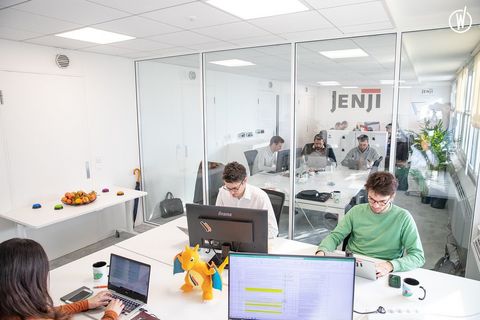Companies news • Publications
How COVID-19 Has Impacted The Workplace and Corporate Expense Management

This article was brought to you by Jenji.
The COVID-19 pandemic has massively disrupted how we live, work, and play. For businesses, the impact on operations, work processes, and the global supply chain is still being felt more than a year since the start of the coronavirus crisis. On the human resources and people management level, the pandemic has forced employers and employees to swiftly pivot and adapt. Many of these changes will undoubtedly impact the workplace for years to come.
As companies and their employees adjust to the realities of a post-pandemic world, Jenji recently released its inaugural Jenji Expense Management Index(or Jenji Index) that looked at how corporate expense claims have changed since the pandemic. The findings reveal a shift in companies’ claims policies that allows employees to expense new types of claims that were not previously possible.
Data from Jenji’s customers were studied for this report. Here are the Top 5 highlights from the report:
- Claims for home office expenses, such as headsets for video conferences, internet and telecommunication charges, and other necessities, surged 153% in 2020.
- Corporate travel expenses plunged globally in 2020 due to international border closures and restrictions on domestic and regional movements.
- C-level executives were the only ones travelling in 2020.
- 80% of companies have not booked flights since March 2020.
- 97% of expense claims were done on mobile apps; 3% were on desktops and laptops.
The pandemic has also accelerated the adoption of digital technologies and workplace innovations. The Jenji Index,in fact, shows a shift in expense management towards digitalisation. For instance, there is a 5% increase (from 17% to 22%) in digital scanning of receipts and invoices since March 2020. We see the shift from paper to digital expense management growing as companies work towards greater efficiencies, reduced operational costs, and eco-friendly business practices.
As has been noted elsewhere, businesses that introduced workplace innovations and adopted digitalisation such as paperless technologies, including digital expense management, did better than their counterparts during the pandemic.
The Jenji Index also showed the top 3 expenses that were created on its platform in 2020 were:
- Ground transportation such as claims for taxi rides, ride-sharing trips (Grab, GoJek, etc.), and local and regional trains for business meetings.
- Internet and phone subscriptions for the home office.
- Meal delivery services for employees who work from home and for virtual team building sessions.
Meal delivery claims saw the biggest increase in terms of expenses created between 2018-2020 greatly due to companies allowing their staff to expense their meals while working from home in 2020 as part of employee health and wellness.
The response to the pandemic has shown that businesses around the world can adapt and offer remote and flexible working arrangements. This is possible with the use of technologies for a home office set-up. On average, employers that allow employees to work from home part-time save about US$11,000 per year for each employee working remotely, according to research-based consulting firmGlobal Workplace Analytics.
“Companies are going to be going digital much faster, they’re going to be automating much faster,” Jake Schwartz, co-founder and CEO of General Assembly, told CNBC. The pandemic is “pulling the future forward.”
At Jenji, we believe that the COVID-19 pandemic has awakened companies to the power of digitalisation:
“Our first Jenji Expense Management Index shows the strong and sustained shift from paper to digitisation in expense management even before the COVID-19 pandemic. The pandemic has only accelerated the shift that will allow companies to be more efficient, lower operational costs, reduce claims errors and fraud, and improve the claims experience for all users. We see this growth continuing as more companies adopt flexible benefits programmes to increase employee satisfaction and improve employee retention,” Lee Chee Leong, Head, APAC for Jenji, commented.
Adapt, Adopt, and Accelerate digitalisation through Artificial Intelligence-driven solutions for your digital expense management processes today! Download Jenji Index here.


